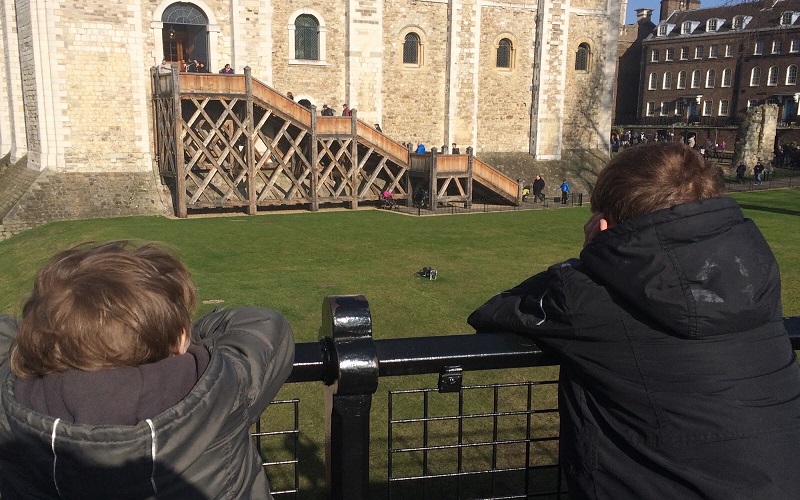In fact, most of the times I’d only go out with all three of my kids in an absolute emergency.
Up until fairly recently, David, who is now seven years old, still needed to be pushed around in a buggy.
Although I’m delighted that we are now at the point where he can walk with us, it usually wasn’t the buggy that make accessing places difficult.
Put simply, is was down to the boys being autistic, and more accurately, David.
David didn’t understand some of the basic safety rules about going outside our family home.
He didn’t understand about holding hands – indeed he completed resisted it.
Every road, car, doorway was a dangerous exit point.
More than not understanding about safety, he didn’t, and even now doesn’t, understand about how to act around other people in public.
He doesn’t know why people don’t like it when he shouts on in the cinema or jumps up and down by his chair in a restaurant.
And even if he did realise, there is no way he could stop.. His body needs to do these things to feel ‘OK’ or make sense of his surroundings.
Screaming and unpacking toys in supermarkets makes perfect sense to David.
Nearly 5,000 businesses across the UK took part in, ‘Autism Hour’, last year.
A initiative from the National Autistic Society (NAS) saw lights dimmed, background music reduced, and staff gain an understanding of autism for over 8,000 hours.
That’s the equivalent of 336 days, just shy of a year.
I’m delighted that autism awareness and acceptance is growing in our country but, the truth is, this is one hour of one day.
As it was set at 10am on a Monday morning, Autism Hour was probably not used by many parents of autistic children.
There are several autism friendly services which I treasure – including the autism friendly cinema screenings.
Many cinemas across the UK show one film a month understand ‘autism-friendly’ conditions.
The lights are on a little so it’s easier to see, the volume is down a bit so it’s not such an impact on the senses.
Generally people are more relaxed about what others are doing, more understanding.
We can take David to these showings.
Approximately 1 in every 100 people are autistic.
At my local cinema there are over 120 showings of movies this weekend – but there is only one autism friendly screening each month in the same cinema.
You might think given my, ‘only one hour’, and, ‘only one screening’, comments that I’m disheartened.
You’d be wrong.
Each one of these events raises the chance that my kids may end being able to function in society.
And I’m glad of it.
Other people see these screenings advertised, other people heard about autism hour, and so other people perhaps got a small clue into what helps my kids.
And that might just have an overall impact that means society, slowly, becomes more accessible for them too.
